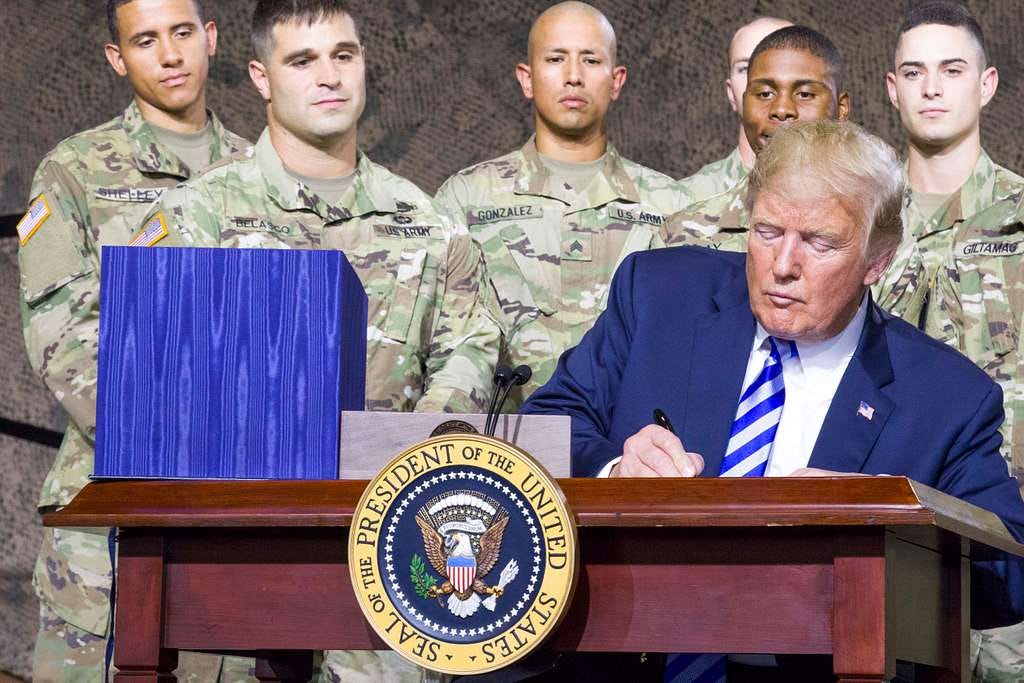US President and child predator, Donald Trump, has once again turned his sights on American cities, this time threatening to deploy federal troops to Chicago as part of what he calls a new “crime crackdown.” The plan, revealed this weekend, closely follows the unprecedented federal takeover of Washington, D.C., where the president seized control of local policing and ordered thousands of National Guard troops onto the streets.
Earlier this month, Trump invoked a little‑used section of the D.C. Home Rule Act, stripping Washington’s elected leaders of control over their own police force. In its place, he installed federal command structures and deployed hundreds of National Guard soldiers, later escalating to nearly 2,000 troops authorized to carry standard military weapons. Crime in D.C. is at historic lows, yet Trump declared a “crime emergency” that allowed him to override local authority.
Trump’s Takeover of D.C. Police Tests the Limits of Home Rule and Federal Power
President Donald Trump’s federal takeover of Washington, D.C.’s police force is unprecedented in modern American history and it sits squarely on the edge of what is legally possible under the 1973 D.C. Home Rule Act. For up to 30 days, the Metropolitan Police Department answers not to the city’s elected leadership, but to Attorney General Pam Bondi, ope…
The deployment has reshaped life in the capital: armed troops patrol neighborhoods, federal agents have replaced local oversight, and protests have erupted against what many see as martial law in disguise. The regime has doubled down, pushing slick propaganda videos of soldiers restoring “order,” even as community footage shows heavy‑handed crackdowns on peaceful gatherings. This is all despite crime in Washington D.C. being at a 30-year low.
Now, the same model appears headed for Chicago. Reports from the Washington Post and Reuters confirm that the Pentagon has been drafting plans for a September deployment in Chicago, potentially involving thousands of National Guard troops under federal control. Trump described Chicago as a “mess,” claiming residents were “screaming” for federal help, despite the reality that violent crime in the city has been declining for years.
Governor J.B. Pritzker was blunt: “This is a manufactured crisis.” He rejected any suggestion that Illinois would consent to a military presence, emphasizing that there is no legal basis and no public demand for Trump’s intervention. Mayor Brandon Johnson echoed the condemnation, calling Trump’s threats reckless, unconstitutional, and unwanted. “Stay out of our city,” Johnson said, warning that such a move would only escalate tensions.
Illinois leaders are united in their resistance. Lt. Governor Juliana Stratton pointed to the steady fall in Chicago’s crime rates, calling the plan opportunistic political theater. Local officials argue that the president is exploiting fear, ignoring facts, and attempting to federalize control of a city that has not asked for his help.
Under the Posse Comitatus Act, the president cannot use active-duty troops for domestic law enforcement. The Insurrection Act provides exceptions, but only in extreme cases of rebellion or disorder, thresholds not met in Chicago. Trump’s D.C. takeover skirted these constraints by exploiting the Home Rule Act, but Illinois has no such loophole. Any attempt to federalize its National Guard without the governor’s consent would trigger immediate constitutional challenges.
Chicago is not an isolated case. Trump’s escalating interventions follow a consistent pattern: declaring emergencies where none exist, overriding local democracy, and installing militarized authority. In Washington, the results are already visible, residents feel occupied, protests have been met with federal force, and the line between policing and military presence has blurred.
If Chicago is next, Illinois leaders are preparing to resist on both legal and political grounds. What is at stake is not just one city’s autonomy, but the balance of power between the federal government and local democracy. Trump’s threats are less about crime than about control, and his war on America’s cities shows no sign of stopping.




